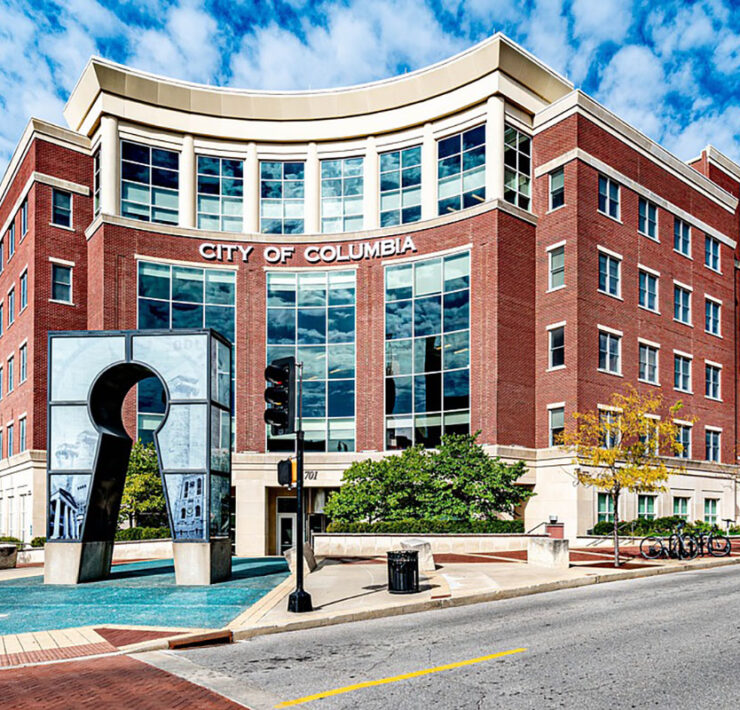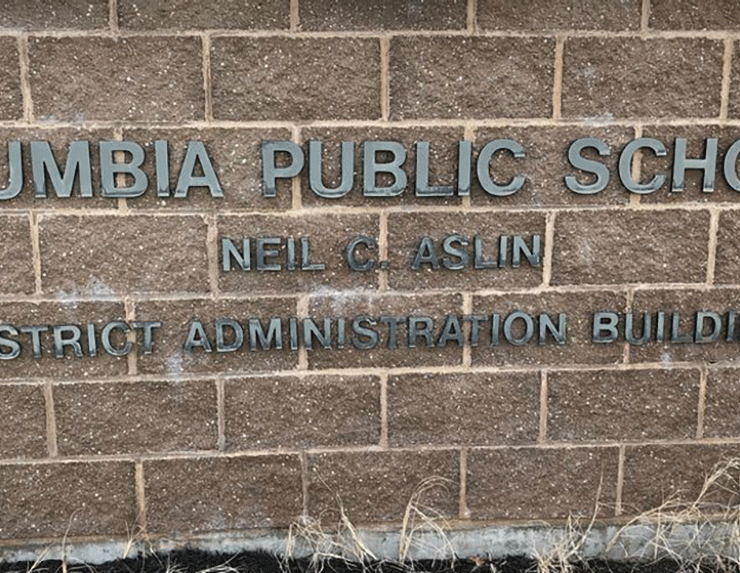Charter Schools in Boone County?
- "Charter Schools in Boone County?" originally appeared in the September 2024 "Education" issue of COMO Magazine.

The legislature’s massive education bill authorized expanding the alternative school model.
Charter schools likely are on the way to Boone County. Just not right away.
An explanation probably is in order. A charter school is like a combination of a private school and a public school district. They’re not-for-profit and don’t have elected school boards like traditional public schools. Charter schools don’t charge tuition.
The Missouri General Assembly at the end of the 2023-24 legislative session approved expansion of charter schools into Boone County — authority that was previously only allowed in Kansas City and St. Louis. Gov. Mike Parson signed the bill.
Dismissing Local Opposition
The governor’s signature overrode the wishes of Columbia Public Schools and officials with other Boone County school districts, who said the charter schools will further dilute the state funding available to them.
“Public education is the heart of our communities and exists to provide an education for all children,” said CPS spokeswoman Michelle Baumstark in an email. “Strong public schools mean strong, thriving communities. Public schools impact economic growth, workforce development, employment, and populations. Dismantling those structures will hurt the very fabric of our communities.
She continued: “Our children do not choose their circumstances and we, as public schools, are committed to educating them all.”
Boone County school districts would lose more than $15 million in funding if charter schools open, Baumstark said, citing an analysis by the Missouri School Boards Association.
For his part, Parson deflected criticism of his decision to sign the education bill despite requests not to.
“I’ve said all along since I’ve been governor, I don’t care how a kid gets an education, as long as they get an education,” Parson told COMO Business Times following the official groundbreaking of the I-70 expansion project in Columbia on June 13. “I don’t care whether it’s Christian, whether it’s charter, whether it’s public, whether it’s private. You know what? Competition’s good.”
Parson’s 5-year-old granddaughter was among the event attendees.
“What I do care about is some small child to be able to have an opportunity to have an education. I don’t care how you get there. But I want them to have that opportunity,” he explained. “If somebody’s’ doing it better than somebody else, you need to figure out why they’re doing it better than you — and figure out how to make changes.”

Money Matters
But local school officials say the stakes are high, and that voters had no say in the decision.
“This is really a funding question,” Baumstark added. “The taxpayers, who represent the market in this question, had no say in whether charter schools should be authorized to open in Boone County.”
Baumstark pointed out that CPS taxpayers have supported the school district “many times over the years by voting to approve bond issues and tax levies to fund their public schools.” Some 60 percent of funding comes from those local sources.
“In the case of charter schools, taxpayers will pay more for a service they are not guaranteed access to — and that they didn’t vote to approve,” she added. When the district considers a funding need, it must seek permission from taxpayers, “and then must remain accountable for those funds authorized by the voter.”
She continued, “Additionally, public schools have locally elected Board of Education members that also must answer to the public. Neither of these criteria are the case with charter schools.”
Some superintendents in Boone County and adjacent districts in a letter also threatened legal action to block the measure, calling it unconstitutional because it doesn’t meet the standard of a local or special law that is supported by a rational basis, adding it “will not survive a legal challenge brought before the Missouri courts.”
Baumstark did not have any new information about potential legal action.
Caleb Rowden’s Role
The effort to bring charter schools to Boone County was spearheaded by outgoing Senate President Pro Tem Caleb Rowden, R-Columbia, who said he sees the measure as a great achievement.
“It’s a huge accomplishment for me as I leave the Legislature,” Rowden wrote in a text message to a reporter’s question. “A legacy item that I will be proud to have been a part of decades from now.”
He said he has no direct connection to any charter schools in the works here and only pushed to get the bill passed. His sister, Rebekah Jouret, is elementary principal at Christian Chapel Academy, one of Columbia’s thriving private schools.
“I will be rooting for the charters to succeed from the sidelines!” Rowden wrote.
When will they be here?
There aren’t any immediate plans for a charter school in Boone County. The law took effect August 28. But there are discussions taking place, said Noah Devine, executive director of the Missouri Charter Public Schools Association, a supporter and promoter of charter schools.
Devine said he can’t reveal anything about the conversations in which he has been a part.
“There are several folks who are interested,” he said, adding, “It will take time.”
How much time?
“The process begins with a letter of interest first,” Devine said. “It takes eighteen to twenty-four months from a letter of interest to a charter opening. More likely it would be the 2026-27 school year before a charter school would open in Boone County. The 2025-26 school year is possible, but not likely.”
Asked if there is a market in Boone County for charter schools, Devine pointed to a 2023 Saint Louis University/YouGov poll. Among likely voters statewide, 52 percent said they supported charter schools in their districts, 20 percent were opposed, and 28 percent weren’t sure.
Asked if charter schools should be allowed statewide, 55 percent supported, 19 percent were opposed, and 26 percent weren’t sure.
Boundary Lines
Charter schools can only take students from the public school districts where they’re located, Devine said. A charter school in Columbia Public Schools boundaries could only take students from within those boundaries.
Charter schools are not a panacea. They have a wide range of student performance from high-performing to low-performing.
The Missouri Charter Public Schools Commission is a state office whose sole purpose it to sponsor charter schools. It sponsors the most charter schools of all the sponsors.
Charter schools have something that works in their favor, said Robbyn Wahby, director of the commission.
“No student is assigned to a charter school,” Wahby said. “Every family is there because they desired to be in that school.”
Sponsors establish contracts with the schools, she said.
“We hold them accountable with performance contracts,” Wahby said. “We do that accountability work each year. We make decisions whether a contract should be renewed or not renewed.”
If a contract isn’t renewed, it can be revoked, and the school may be closed.
If another sponsor isn’t performing to standard, the commission receives those schools in its portfolio.
Charter schools aren’t required to offer student transportation as public schools are, she said.
“I think there are wonderful opportunities to both parents and educators” for charter schools in Boone County, Wahby said. “We would be delighted to talk with them.”
Student Absenteeism
Charter schools aren’t escaping the post-pandemic issue of widespread student absenteeism. The state standard is 90% of students in school 90% of the time.
Among schools in the commission’s portfolio, Brookside Charter School in Kansas City had 60.7% attendance; Atlas Public Schools in St. Louis had 63.8% attendance; and De La Salle Education Center in Kansas City had 25.9% attendance. The data is from the schools’ annual reports.
“A kid is a kid is a kid,” Wahby said of the student absenteeism.
By distinction, according to data from the Missouri Department of Elementary and Secondary Education (DESE), CPS had an attendance rate of 73.6 percent in 2023, down from 84.7 percent in 2019. That is similar to the state of Missouri as a whole, which had an attendance rate of 76.7 percent in 2023, down from 87.3 percent in 2019.
Baumstark said in April 2024 that the district is dealing with an increase in overall absenteeism since the pandemic, with more students missing more often.
Meanwhile, Wahby said that another distinction of charter schools is that families are there by choice. She also noted that charter schools trade more accountability for autonomy.
She gave the example of De La Salle, a school for students in grades nine through twelve. One group of its students are overage and under credit. Another is first-time freshmen. It also serves students who need to make up a few credits. Simply looking at the graduation rate would not provide a true picture of its focus, Wahby said.
At Brookside, Superintendent Roger Offield works to establish connections with families, she said.

Atlas Public Schools
Atlas is a K-3 school that started three years ago in St. Louis, said Colby Heckendorn, executive director and co-founder. It will expand to K-5 and will offer preschool in the future.
With a 91.6 percent score on the state Annual Performance Report, it has the highest APR among charter schools. However, that measure doesn’t include academic scores because no students were in grade levels that took the Missouri Assessment Program tests.
Atlas promotes itself as “Diverse by Design.”
“We wanted to design the school that would set all students up for success,” Heckendorn said. “We really pride ourselves on our sense of belonging.”
The student population is 78 percent Black, 6 percent multiracial and 14 percent white. One hundred percent qualify for free- or reduced-price meals. Seven percent are students with disabilities and homeless students make up 2.5 percent of the student population.
“It takes intentionality,” Heckendorn said. “We’re free and public and open to all. We want to make sure we serve all the students of St. Louis.”
The school operates year-round — five weeks on and two weeks off. The first week off is a break for teachers. The second week is strategic planning and training for teachers.
“It has really worked well for us,” Heckendorn said.
He also explained that place-based learning is another focus for Atlas, describing that approach as “expeditionary learning” by getting students into the community beyond the four walls of the building. For instance, students study trees in the Missouri Botanical Garden. First-graders have a unit on tools and work in which they visit a nearby hardware store.
The school invests in teachers, with two in every classroom, Heckendorn said.
He also suggests that some of the misgivings voiced by public school officials about charter schools may be misplaced.
“We’re all working with the same goal, to reach a high standard for our students,” Heckendorn said. “Our kids are the ones who will benefit.”








